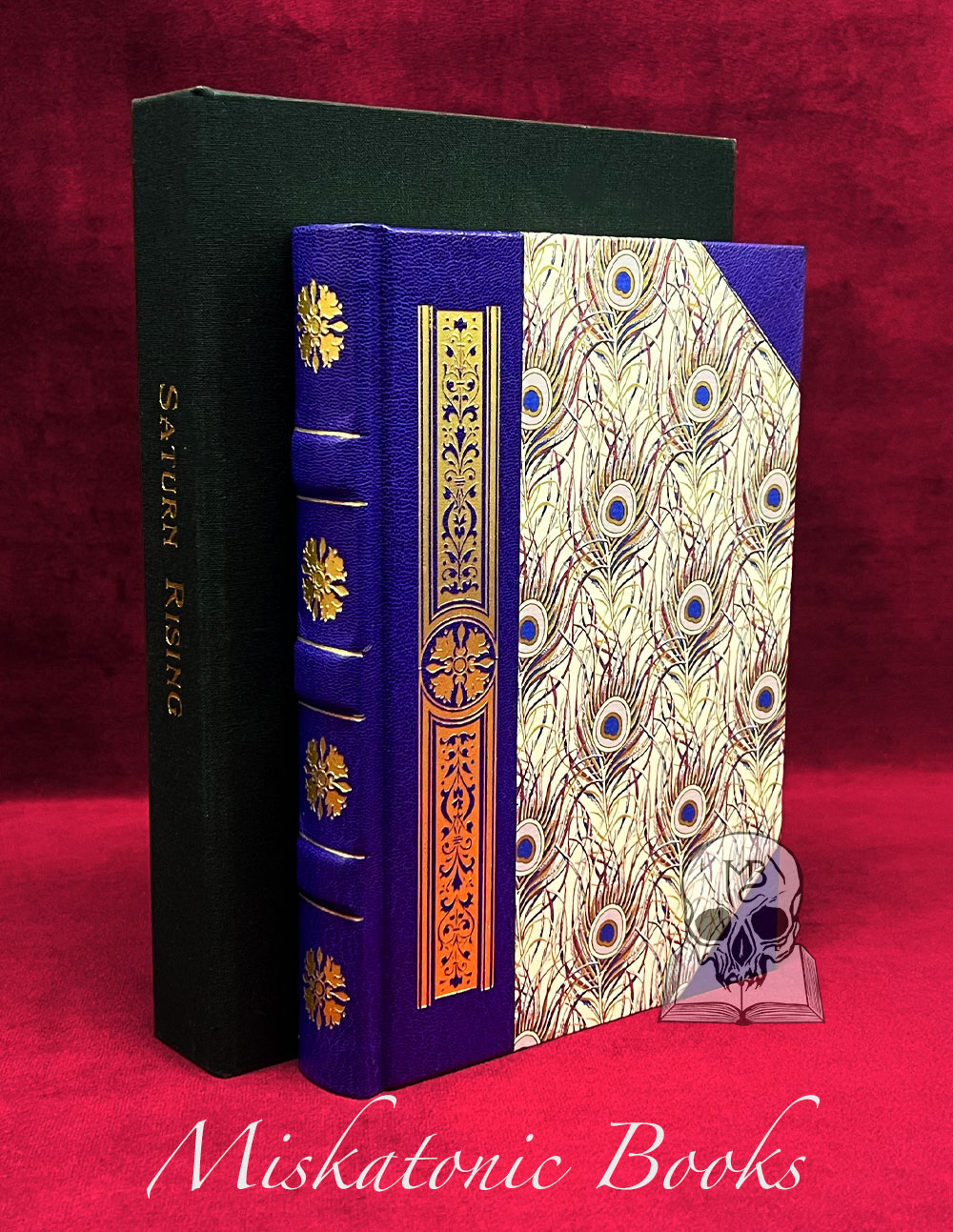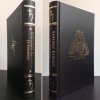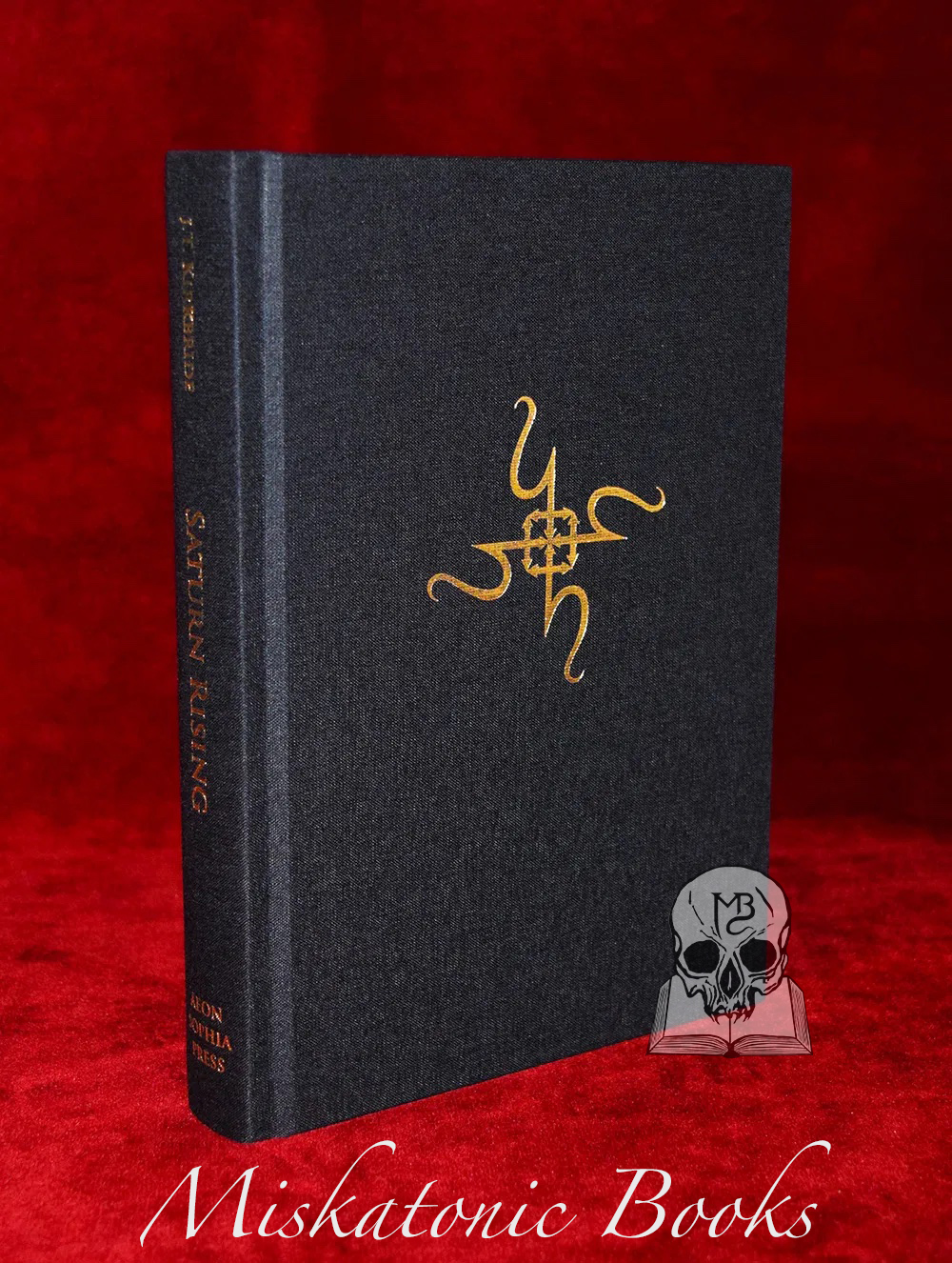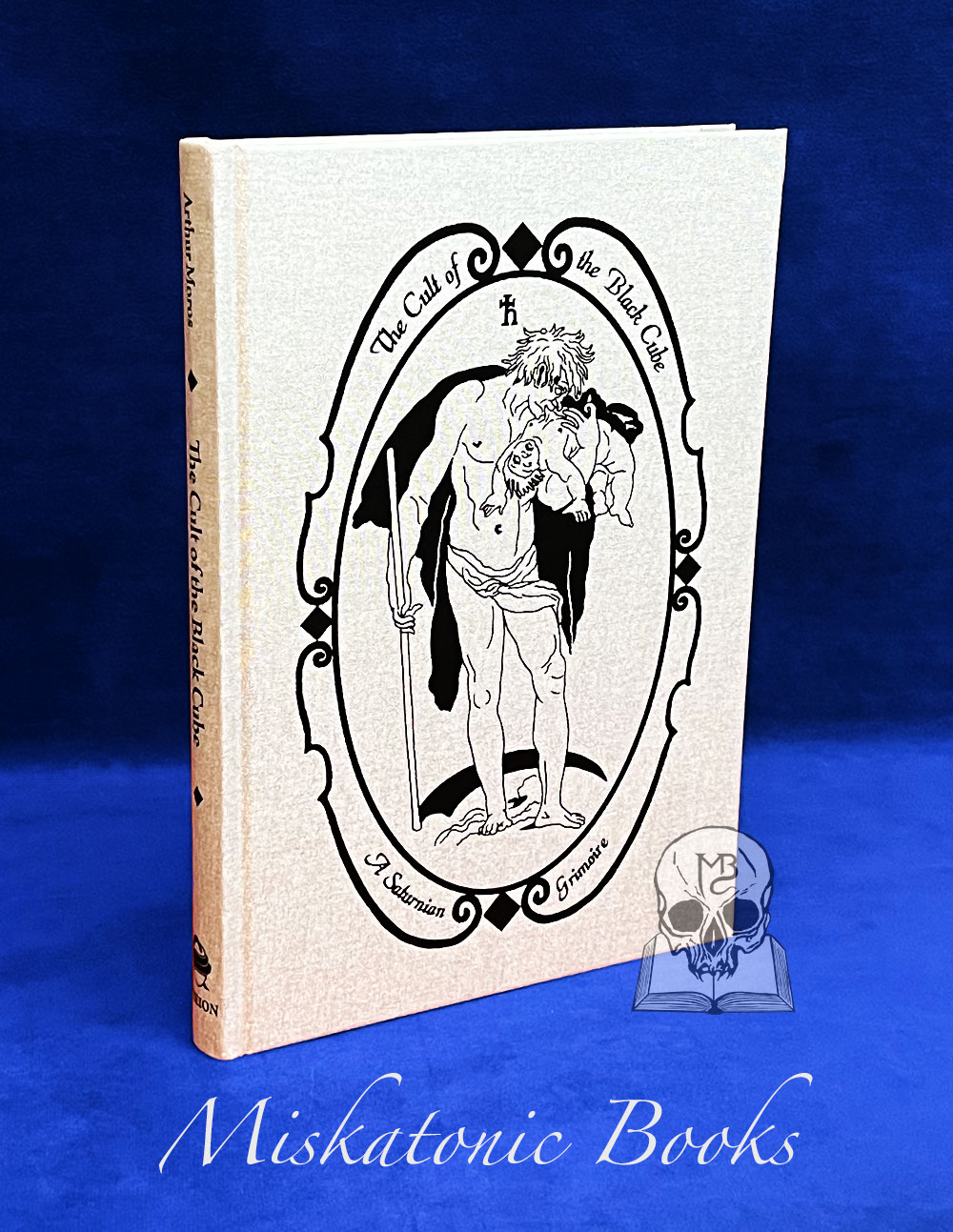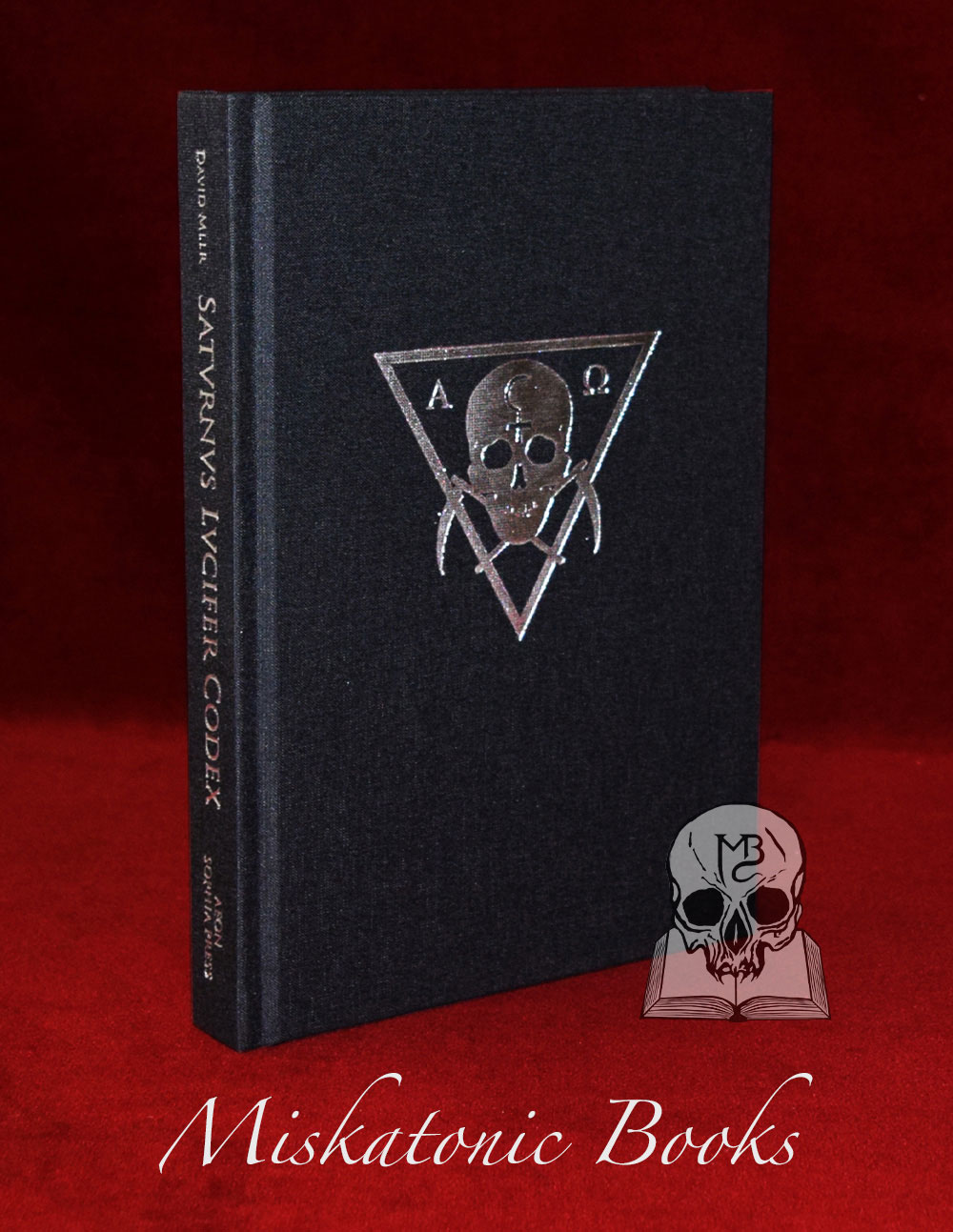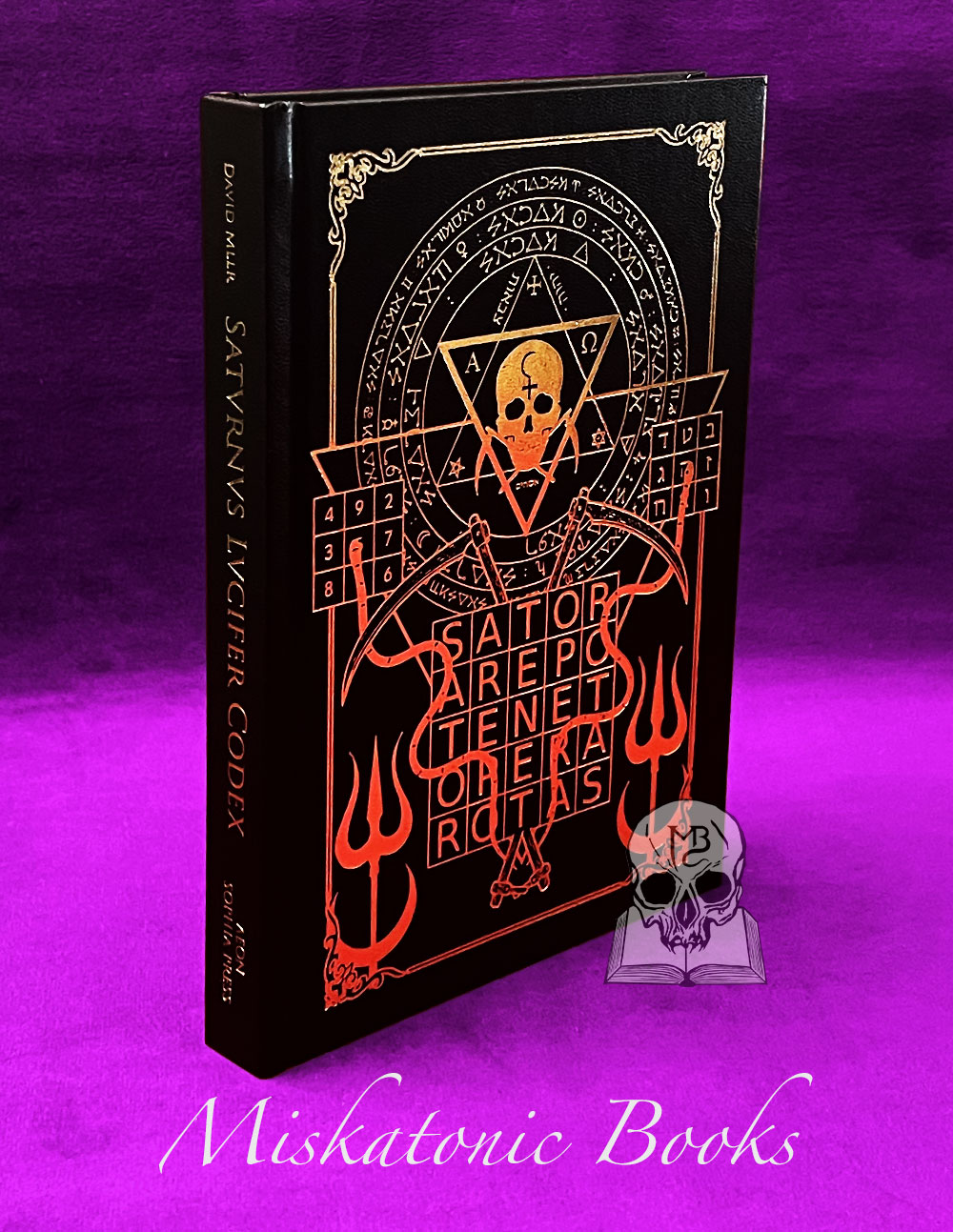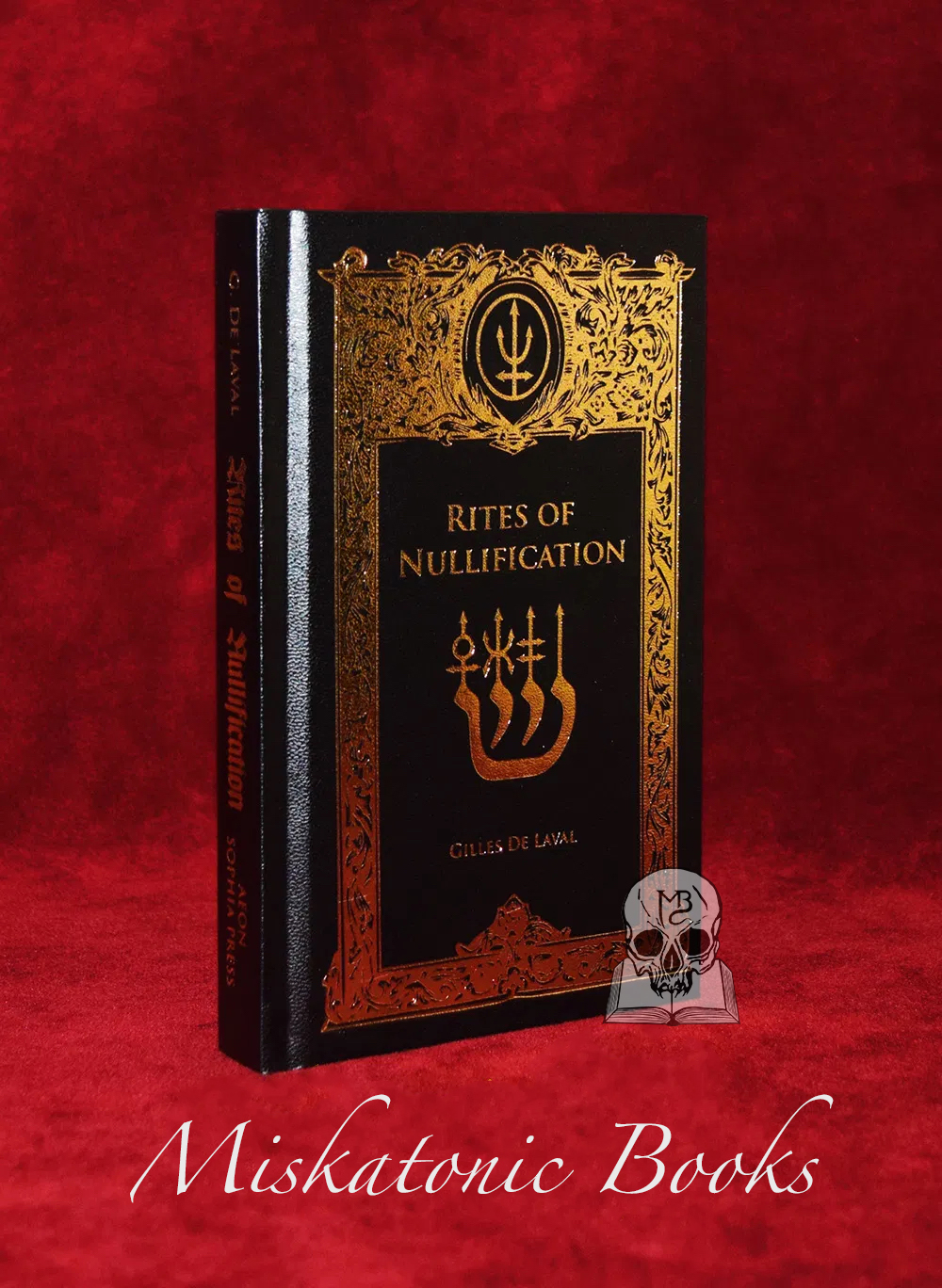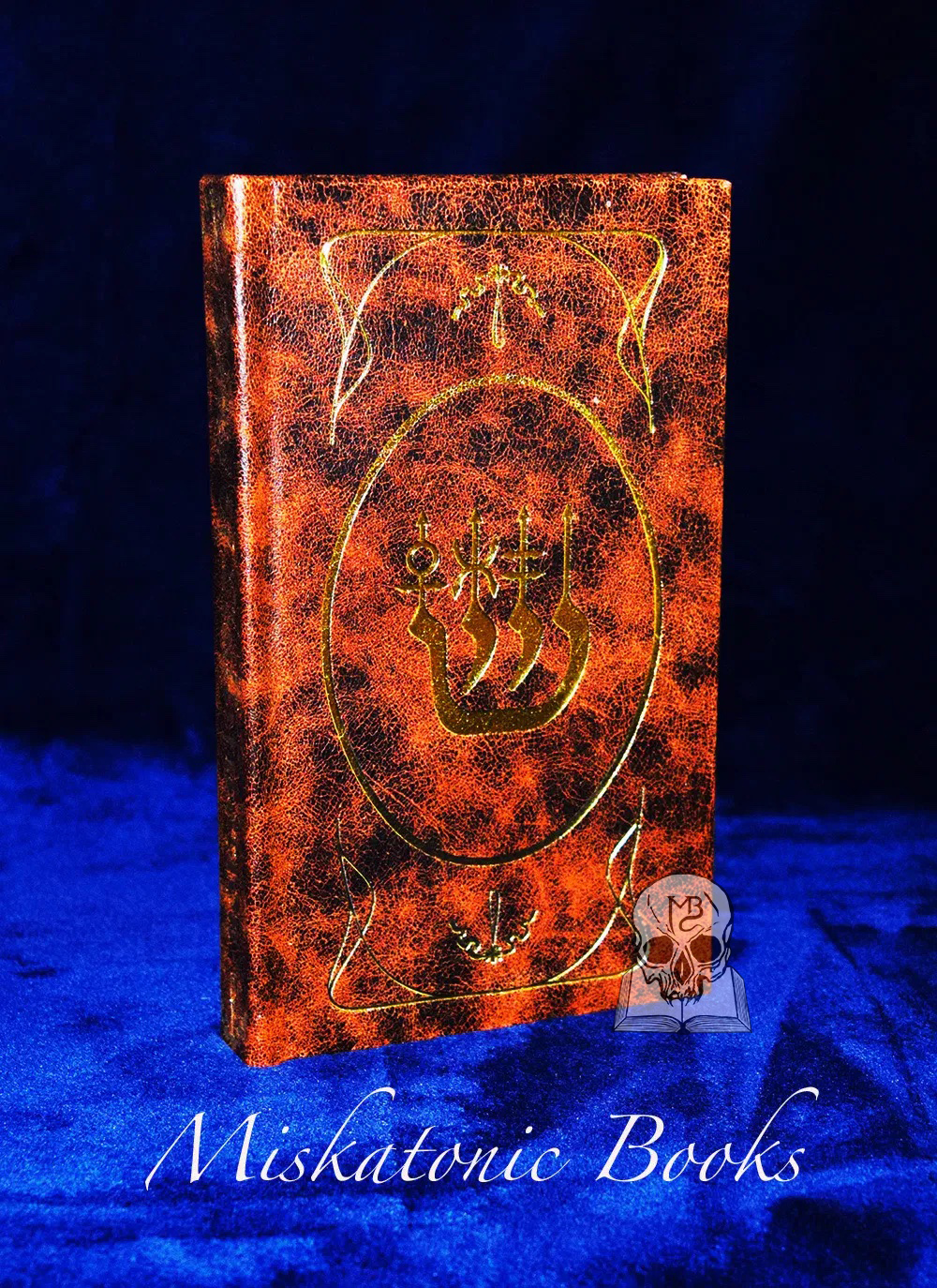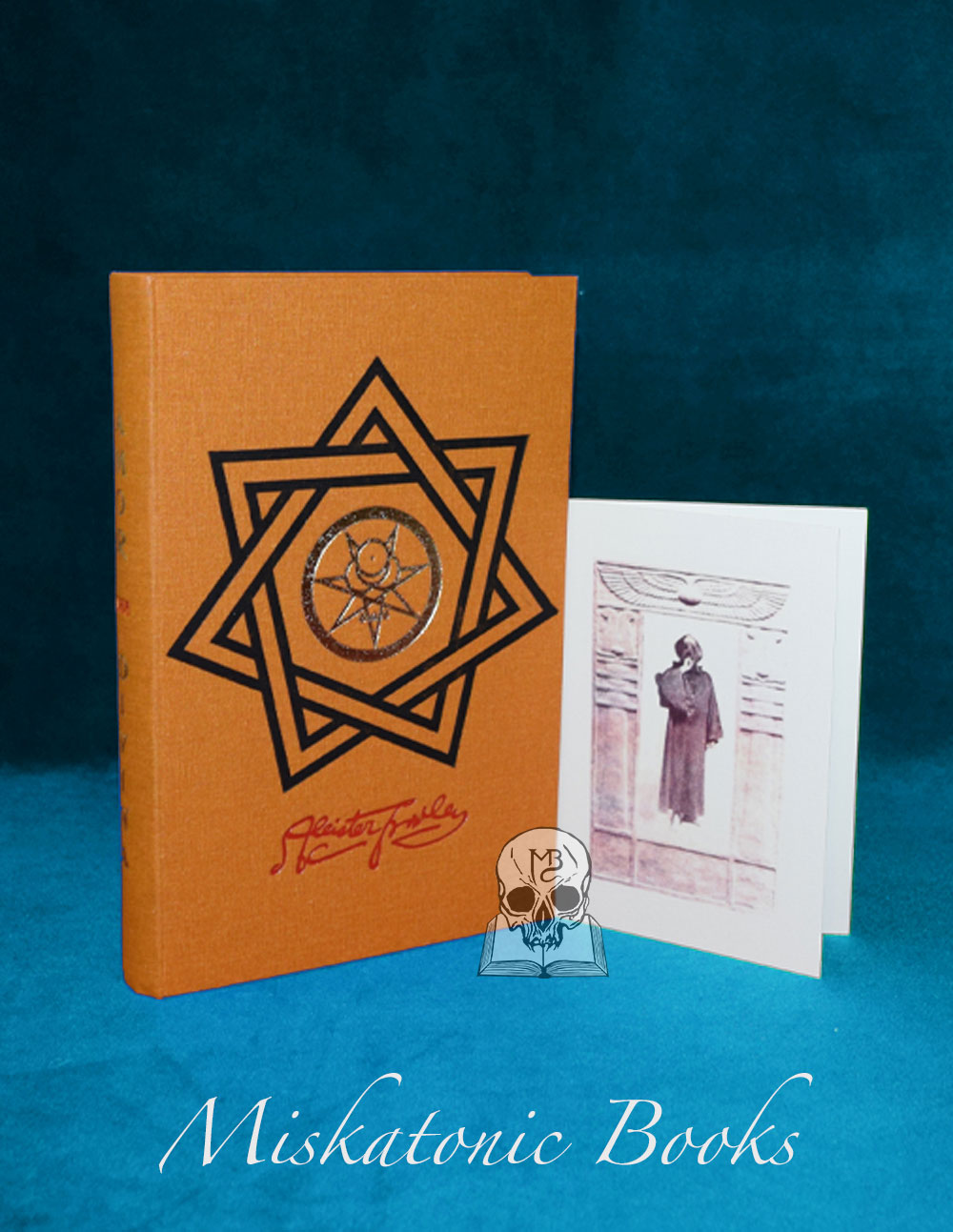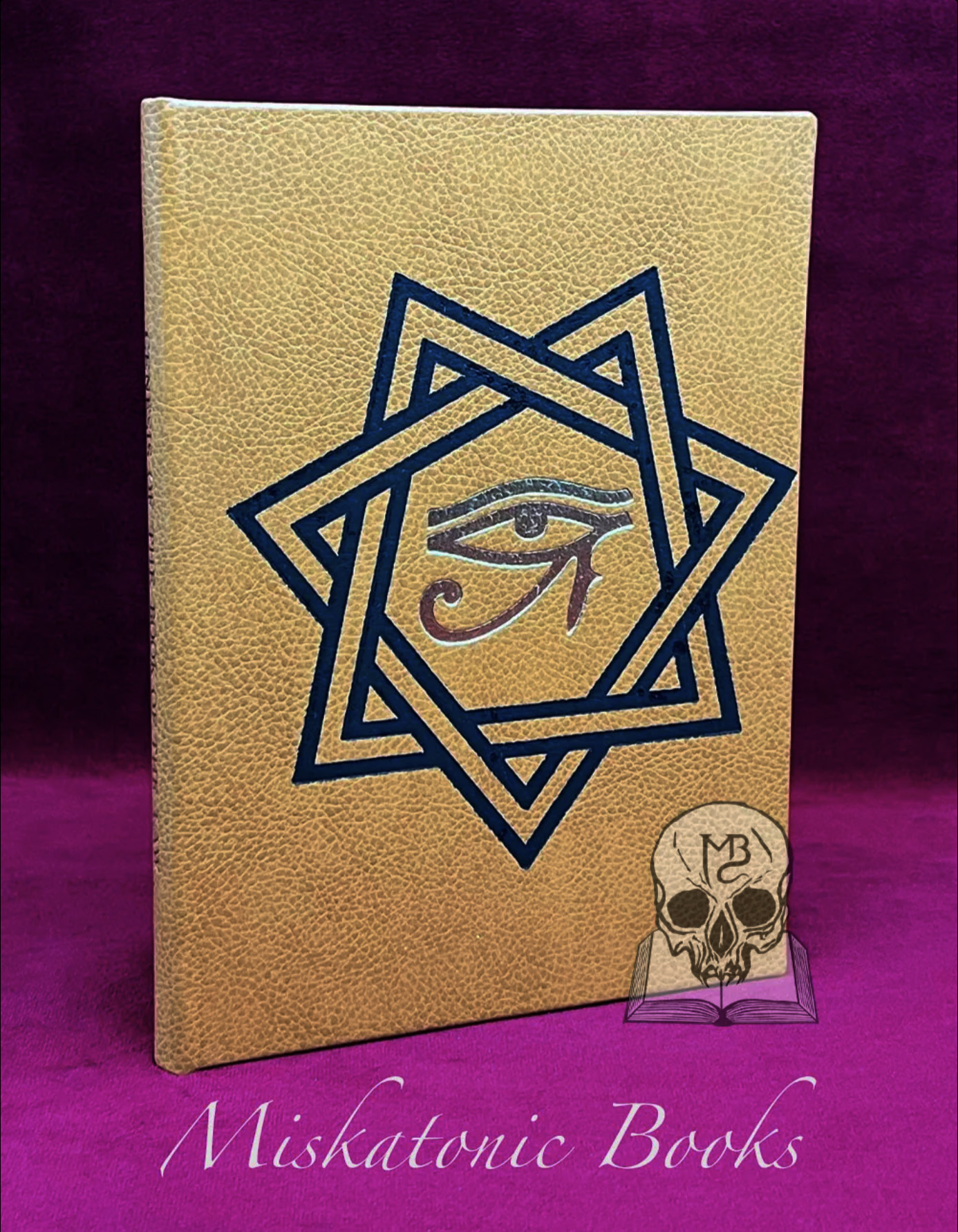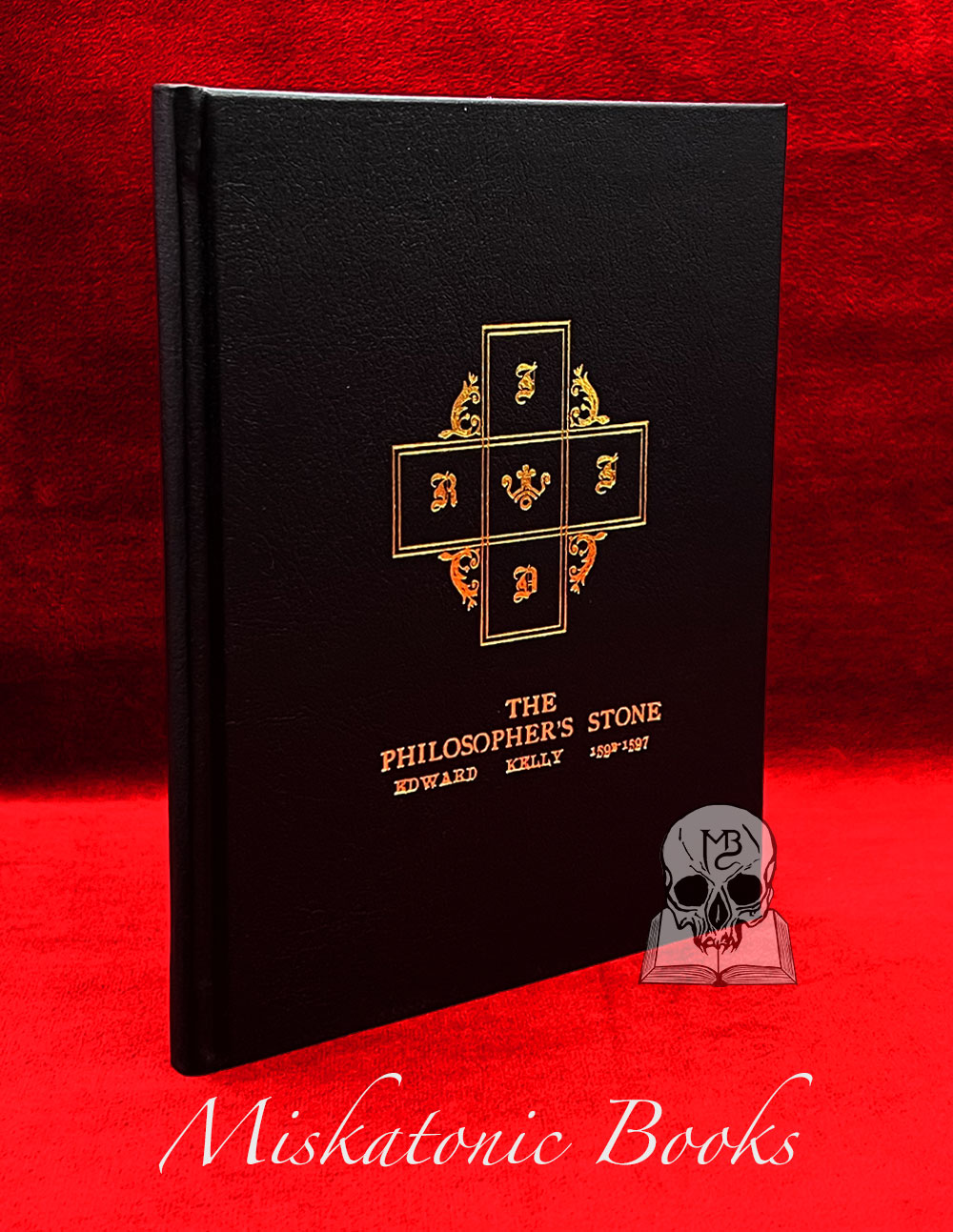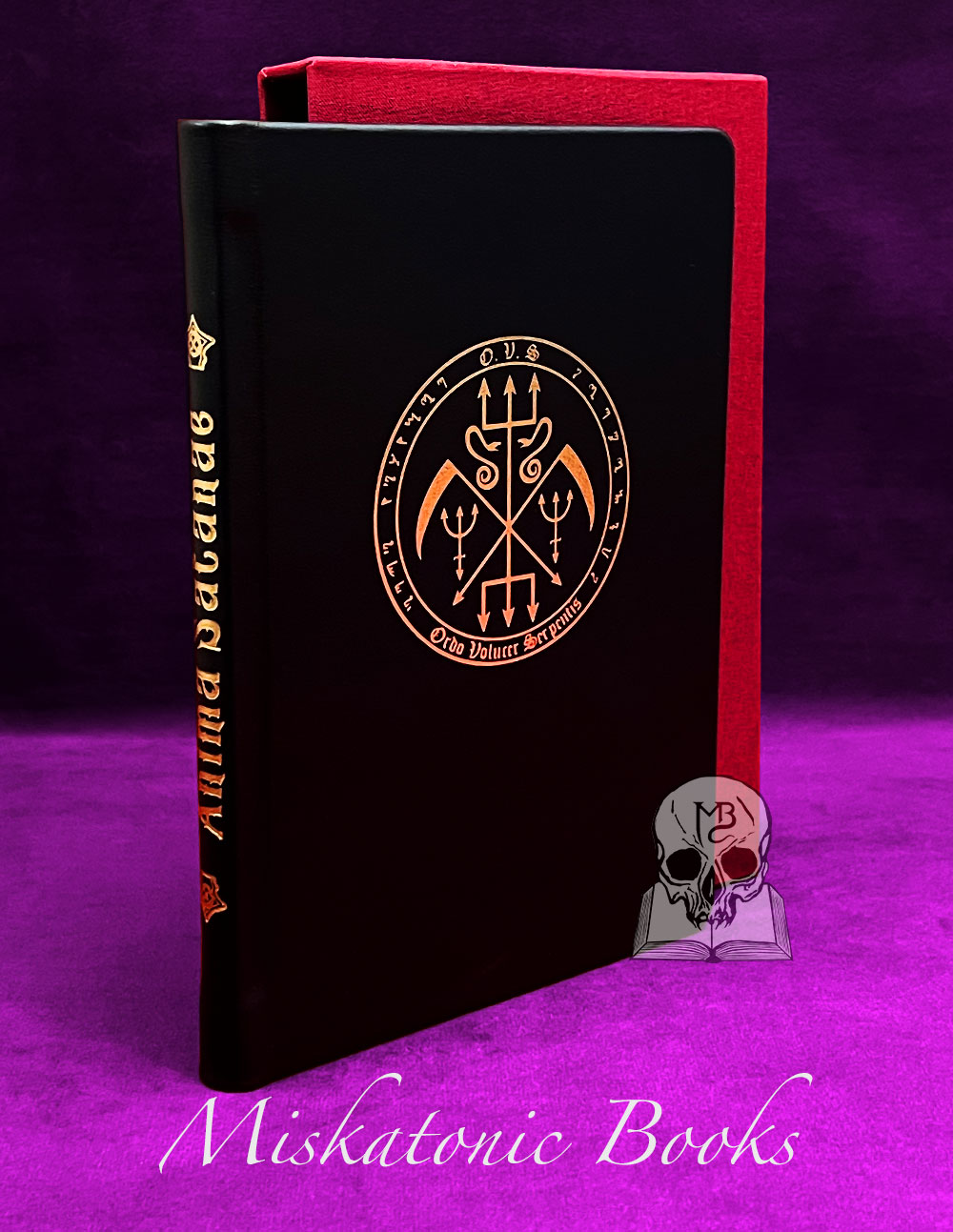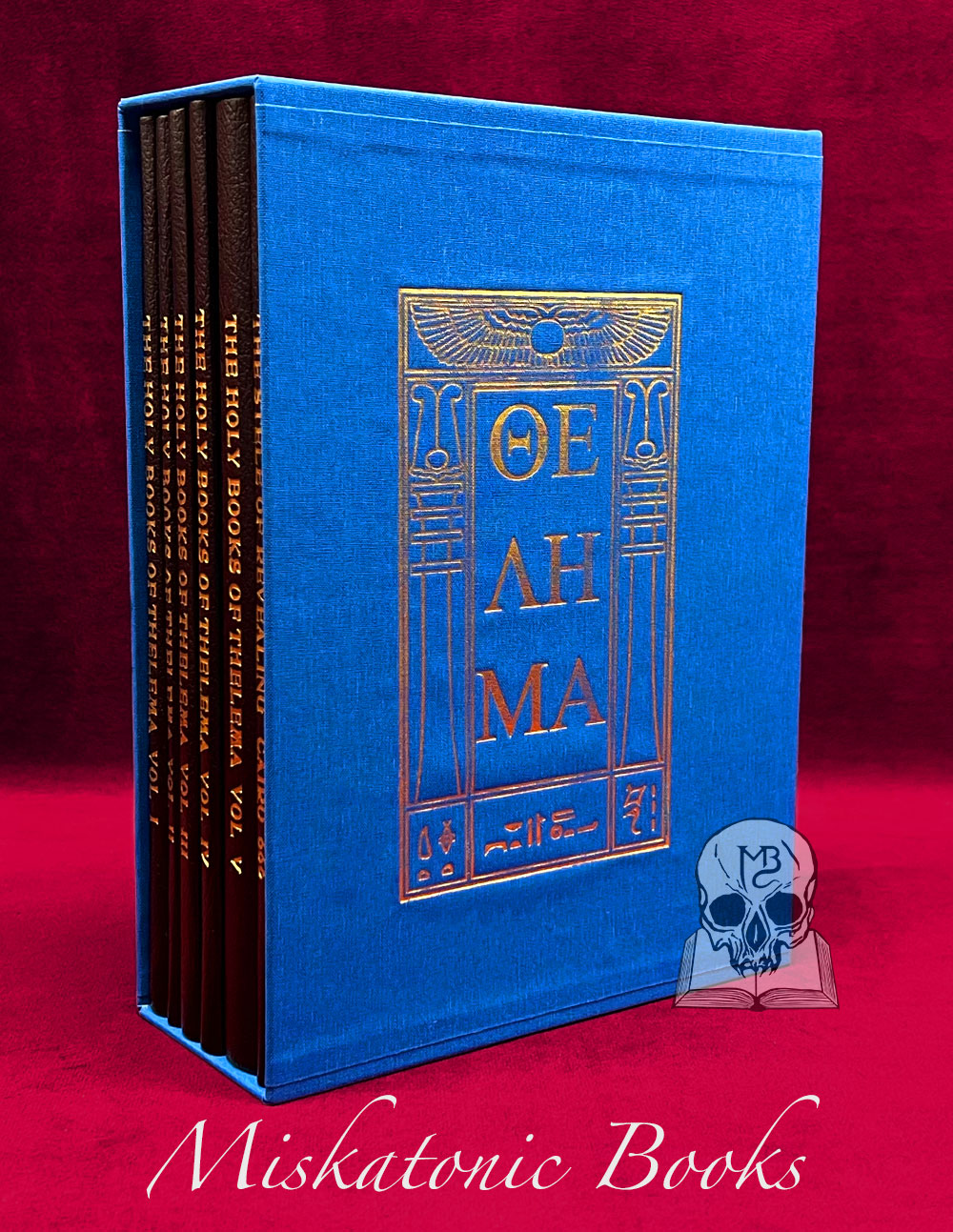THE PHILOSOPHER'S STONE: A Facsimile Rosicrucian Alchemical Manuscript (Leather Bound Limited Edition)

www.miskatonicbooks.com
THE PHILOSOPHER’S STONE: A Facsimile Rosicrucian Alchemical Manuscript (Leather Bound Limited Edition)

200 leather bound hardcover copies, titled in gilt and to the front of each copy is a gilt talisman designed after a Rosicrucian emblem found at the end of the manuscript: a squared cross of parallel lines enclosing the four letters I.N.R.I. in gothic characters, surrounding a tripartite crown, each corner of the device flanked by decorative scrolls and leaves.
Published by Hell Fire Club Books
A Facsimile Rosicrucian Alchemical Manuscript
On the Philosophers Stone.
Containing
The Three Magisteriums of the Art
attributed to Edward Kelley 1592-97 the companion of Dr. John Dee
(Of which this is the second edition prepared and printed from the first editions lithographic plates) that came from an unpublished handwritten notebook circa 1860. The work reflects the secret alchemical traditions of the Societas Rosicruciana in Anglia and the Hermetic Society of the Golden Dawn
Regarding this rare manuscript Professor Teresa Burns of the University of Wisconsin-Platville wrote in the ‘Journal of the Western Mystery Traditions’ that it
‘‘…constitutes a critical link in the transmission of the underground current of physical alchemy… this volume is a significant addition to the library of any serious student, practitioner, or historian of the alchemical arts…’’
“..Manuscriptial Compendium During 1592-1597 …”
This unique document opens with a curious history relating to the Emperor Rudolf II and his court physician Sennert, who were involved in the discovery of an alchemist ‘Kallnuss’, his eventual imprisonment and attempted escape, which lead to his ‘..breaking four ribs..’ and dying ‘soon after..’.
This legend of Edward Kelleys (here misnamed Kallnuss) demise is a variant of the famous story found in Francis Barrett’s ‘Magus’ and in Elias Ashmoles early account,; the manuscript itself contains much material not found in any of the surviving Kelley material (either the ‘Tractatus de Lapide Philosophorum’ or in the collection of texts which survived through the agency of Sigismond Bacstrom).
The alchemical traditions of the Hermetic Society of the Golden Dawn are derived through the agencies of Fredrick Hockley et al, yet it is widely believed that a connection with the older tradition is to be sought in the German Gold und Rosenkreuz formed in the late 1500’s. Our manuscript is clearly a translation from a German original, as we know it is Kelleys recipe, could the transmission of the alchemic mystery in the Rosicrucian Orders have come ultimately from the experiments of Dee and Kelley?…
Prefixed to the treatise is a chapter ‘Magnalia’ which exhorts the aspiring alchemist in highly religious language to be ‘…as cunning as the Serpent and candid like the Dove..for who, not possessing these qualities in this sedimental earth, will be attacked by men and beasts, even devoured by dogs..’. The path of Initiation in the Western Mysteries is clearly alluded to here, and the work herein described contains many deep allusions to the esoteric mysteries for those who ‘know, and well consider..’.
A most curious and dark passage on
‘..The Hand of the Philosophers..’
from wherein is mentioned a ‘Philosophical Club’ to which the aspiring student must swear and bind himself as a servant and ‘truly as an alchemist’, to learn the secrets of the ‘Hand’ which contains the secrets of the masters of the art…
This strange anonymous ‘Philosophical Club’ with its religious language, its sacred oaths, is this the invisible college of the Rosicrucian Fraternity?
Immediately following the previous passage is a lesson on the Four Lettered Name of God and the ten qualities or ‘Image’ of the true alchemist, an elevation to god-like status for the natural man, the ‘..true footsteps of the Image..’, a work of prayer which leads to the Heart of the Father, ‘by which he extracted, cleansed us, reconciled, and made us lovely to God..’..
Following is a fulsome account of the V.I.T.R.I.O.L.U.M.
from which the ‘Philosophi Adepti’ prepared their ‘First Stone’, their starry regulae and ‘sap of the wise’, a substance both solid, powder, and limpid liquid, quick in its agency and startling transformations!
An extended rehearsal of its names and attributes follow, taken from Valentine, hosellanus, Romanus, Erbinacus, Hollandus &c &c..
This same ‘Vitriol of the Wise’ spreads as a vapour, and our author likens it well to the potency ‘..thrown into the large Vessel of nature..’ at the time of the incarnation of the deity, ‘..opened with the menstruum which closes the whole world..’ a Rosicrucian mystical cipher for the enlivening of the natural elements by the spirit…
A careful instruction on preparing this flower ‘..in a glasse, in the balneum..’ which then is putrified, the crystals dried and ‘..you will receive in your eye and hand an liquorum unctuosum which the Philosophers give different names..’ encompassing the dry, wet, and middle passages to the ‘Golden Fleece’..
Our Manuscript details both the processes of the ‘Dry’ and ‘Wet’ alchemical paths, both the processes and the various secret names by which they are known, followed by a disquisition on the Red Philosophical Egg and its procedures given in terse language and each page bristling with alchemical signs and symbols of the work, a hidden language of the Adepts…
Next comes the largest and most significant section of the manuscript:
‘..To Prepare The Red Elixir..’
Being the actual recipe for the projecting powder used by Edward Kelley in Bohemia in the 1590’s. Kelleys Famous red tincture was reputed to have been found at Glastonbury alongside an indecipherable manuscript, but the initiated tradition maintains that he discovered the secret himself, with the blessing of his Angel, and practised it with great effect:
‘..Edward Kelley made projection with one small grain (of the red elixir) upon one and a quarter of common mercurie..’ from which he produced an ounce of pure Gold, as Elias Ashmole attests in his Theatrum Chemicum Britannicum of 1652.
Kelley was known to have produced the second magisterium of the art, in the healing of his one time master Willem Rozmberk, shortly before his arrest and detention at Krikovlat. He was subsequently transported to the Castle of Moste where he wrote the ‘Tractatus de Lapide Philosophorum’ a general treatise of the Stone which has none of the detail or practical instruction found in our manuscript.
Page after page of the chapter of ‘The Red Elixir’ details Kelleys experiment and application of its secret, this unique historical document puts Kelleys contribution to the science on a par with any of the great operative alchemists. A series of ‘Questions and Answers in the Work’, (an explication of the dry path) shows an advanced practical application alongside the more mystical and religious sentiments expressed elsewhere in the manuscript. Every hidden operation leading up to the stage of the Red Powder is discussed with a profusion of chymical hieroglyphs throughout the text…
Simplicitas Sapientiae Sigillum
Here follows a passage on the multiplication process, its vitues in the second magisterium (the art of healing) its stages and procedures…
Purificatio Salis Mirabilis Philosophica
Where the process of preparing the ‘Sea of the Wise’ is given in clear practical language, followed by..
Praeperatio Menstrui Apollonici & Preparatis Menstrui Mercurialis
which give in detail the materials, equipment and procedures necessary to these two compartments of the ‘Tablet’ which follows, a diagrammatic illustration of the Great Work in a four-fold process of transformation:
‘..who exactly understands this Tablet wil he know how one takest origin out of the other..’
A mystical-chymical expression of the formula of Tetragrammaton expressed at the commencement of the manuscript. More extraordinary is what follows, a complex alphabetic cipher, given in the form of a conjuration to the reader and to the book itself, that it fall into no unworthy hands, culminating in the final symbolic design of the manuscript: a Rosicrucian cipher of the five elements written in cruciform design in the letters of the name ‘YHSHVH’ which appears in the 18th Degree of the Rose Croix of Heredom and is ultimately derived from the Kabbalistic speculations of Johannes Reuchlin and the renaissance magicians.

www.instagram.com








